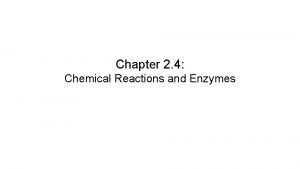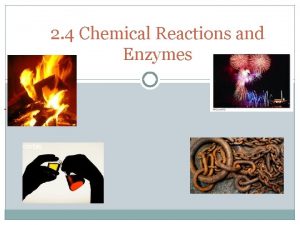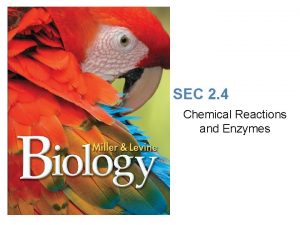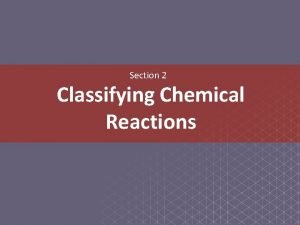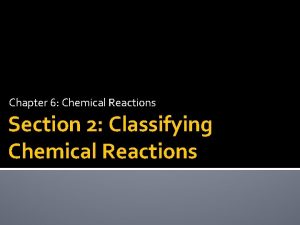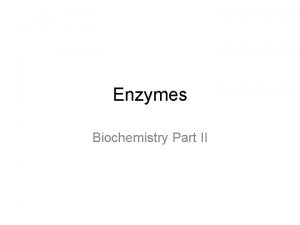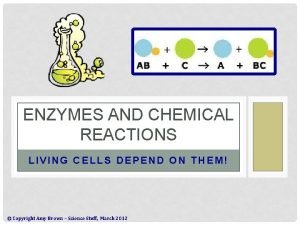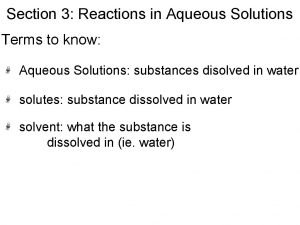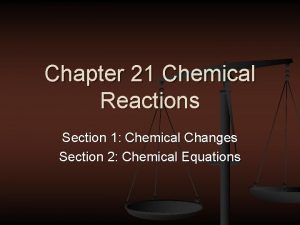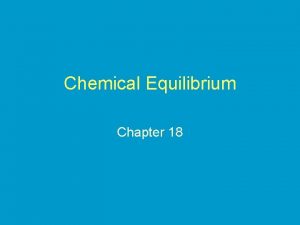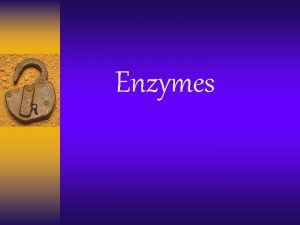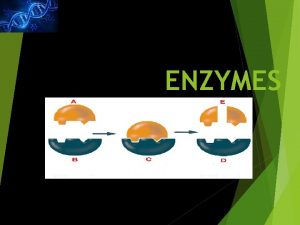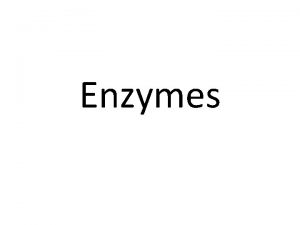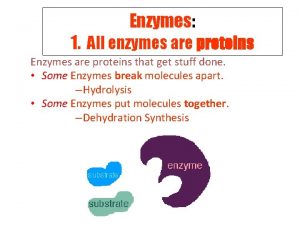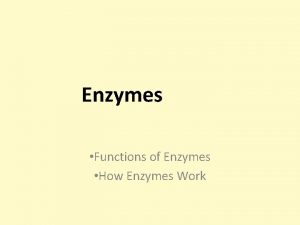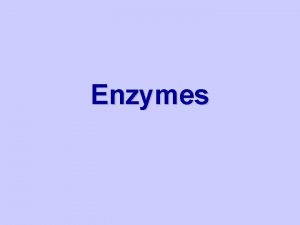CHEMICAL REACTIONS AND ENZYMES Chemical Reactions A chemical









- Slides: 9

CHEMICAL REACTIONS AND ENZYMES

Chemical Reactions ■ A chemical reaction is a process that changes, or transforms, one set of chemicals into another. ■ Mass and energy are conserved during chemical transformations. ■ The elements or compounds that enter into a chemical reaction are known as reactants. ■ The elements or compounds produced by a chemical reaction are known as products.

Energy in Reactions ■ Some chemical reactions release energy, and other reactions absorb it. ■ Energy changes are one of the most important factors in determining whether a chemical reaction will occur. ■ Chemical reactions that release energy often occur on their own, or spontaneously. ■ Chemical reactions that absorb energy will not occur without a source of energy.

Energy Sources ■ In order to stay alive, organisms need to carry out reactions that require energy. ■ Because matter and energy are conserved in chemical reactions, every organisms must have a source of energy to carry out chemical reactions. ■ Plants; from sunlight ■ Animals; consuming plants or animals

Activation Energy ■ Activation energy is the energy needed to get the reaction started. ■ Activation energy is involved in chemical reactions regardless of whether the overall chemical reaction releases energy or absorbs energy.

Enzymes ■ Some chemical reactions make life possible are too slow. ■ A catalyst is a substance that speeds up the rate of chemical reaction, ■ Catalysts work by lowering a reaction’s activation energy. ■ Enzymes are proteins that act as a biological catalyst.

Enzyme-Substrate Complex ■ The reactants of enzyme-catalyzed reactions are known as substrates. ■ The substrate bind to a site on the enzyme called active site. ■ The active site and the substrate have complementary shapes.

Regulation of Enzyme Activity ■ Enzymes play essential roles in controlling chemical pathways, making materials that the cells need, releasing energy and transferring information. ■ Temperature and p. H can affect the rate of enzyme activity.

Test yourself ■ What is activation energy? ■ What are enzymes? ■ If p. H can change the shape of the enzyme, how might p. H affect chemical reactions?
 Section 2-4 chemical reactions and enzymes
Section 2-4 chemical reactions and enzymes What is released or absorbed whenever chemical
What is released or absorbed whenever chemical Section 2-4 chemical reactions and enzymes
Section 2-4 chemical reactions and enzymes Chemical reactions section 2 classifying chemical reactions
Chemical reactions section 2 classifying chemical reactions Section 2 classifying chemical reactions
Section 2 classifying chemical reactions What is the role of enzymes in chemical reactions
What is the role of enzymes in chemical reactions Enzymes affect the reaction in living cells by changing the
Enzymes affect the reaction in living cells by changing the Chemical reactions section 3 reactions in aqueous solutions
Chemical reactions section 3 reactions in aqueous solutions Section 1 chemical changes
Section 1 chemical changes Chapter 18 chemical reactions balancing chemical equations
Chapter 18 chemical reactions balancing chemical equations
